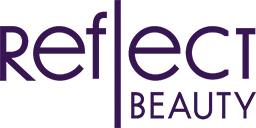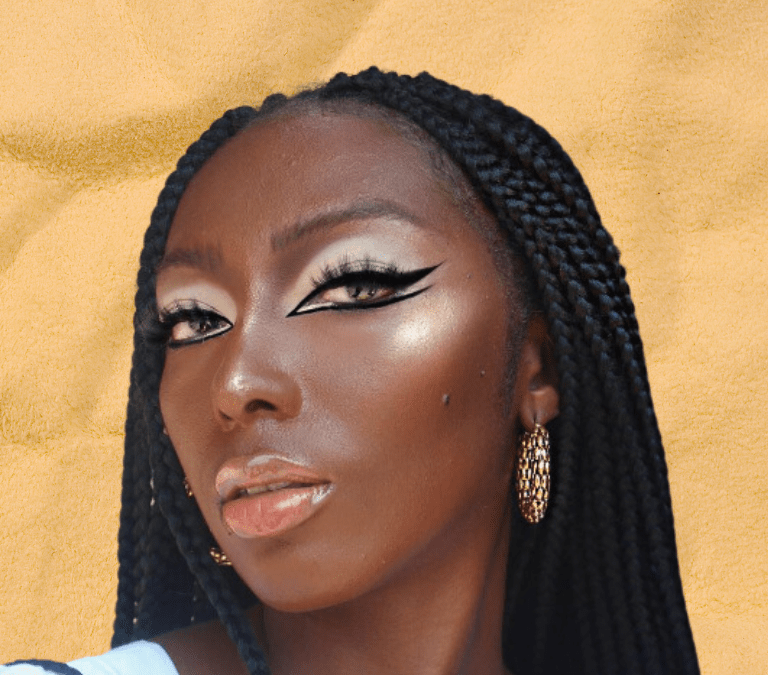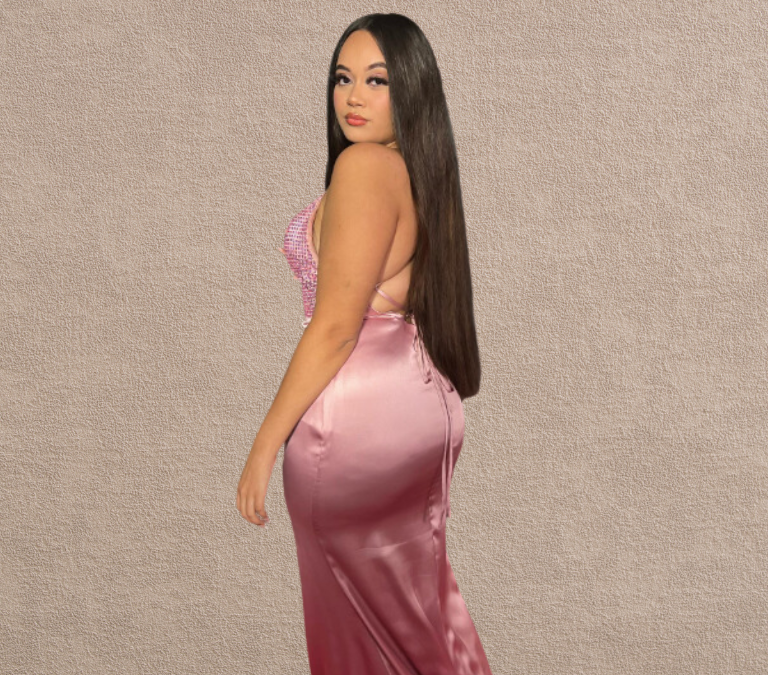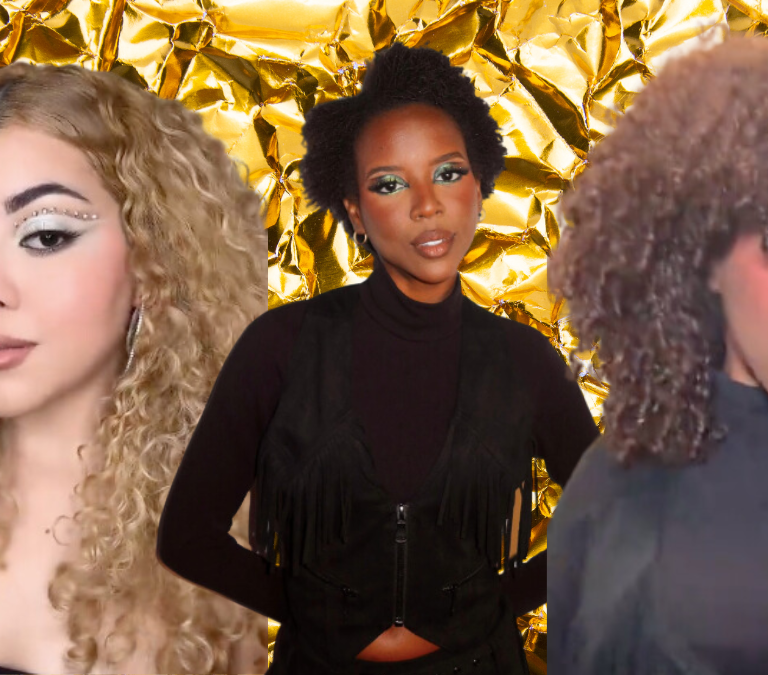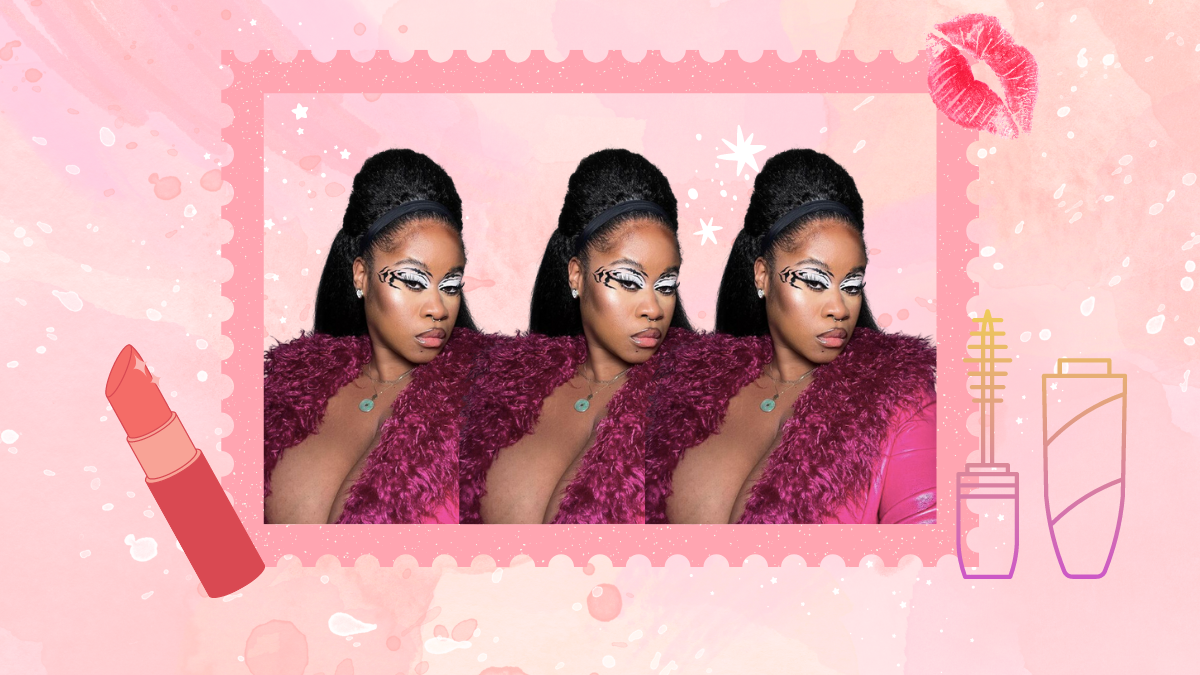
“My responsibility in the makeup industry is to decolonize makeup,” Giselle Ali shared when asked about her career as a celebrity makeup artist.
Giselle Ali is a London-based editorial and red-carpet makeup artist with a client list that includes Cynthia Erivo, Munroe Bergdorf, and Adwoa Aboah. As her Instagram bio reads, Vogue once called her ‘Captain of the Cat Eye.’ I sat down with Ali to learn a little bit about her start in the industry, how her queerness inspires her everyday makeup inspiration, and what the future has in store.
“My mom is an icon,” Ali shares. “She is an avid makeup user and is very with the times. She always has a dark lip liner and perfectly lined lips. It’s either a glossy red or a frosty gold bronzey kind of color paired with loads of mascara.”
[SEE ALSO: The 7 Best Tinted Lip Balms With SPF To Protect and Enhance Your Pout]
From scrolling through her Instagram of Vanity Fair and British Vogue covers, her work embodies a powerful avant garde and colorful aesthetic. To Ali, her work is feline and honoring everything that is black femme existence. It’s obvious her Jamaican roots and “flamboyant” culture as she calls it, is at the core of her demeanor and self-expression.
“Growing up, I didn’t have any people that looked like me with the same intersections—being queer, being fat, being black, being femme. The only person I can think of is Queen Latifah. Her dabble between femininity and masculine energy is amazing,” she explains.
Curious to know exactly how her culture, queerness, and craft intertwine, Ali explains, “Makeup has been a way for me to express my queerness without saying it. Being Jamaican is a trip because we are the most queer and flamboyant people, but also, because of colonialism, we can be some of the most homophobic. A tricky reality to exist in.” Makeup is her escape, somewhere she goes to express her sexuality and honor the communities she occupies.
As a self-proclaimed introvert and July Cancer, Ali celebrates Pride by being the most social she is all year. “Community is so important to me, and pride is a time where I feel like I really flourish.”
As I dive deeper into exactly how Ali would define her queerness, she struggles to answer.
“It’s tricky for me to talk about because although I’m not closeted as a bisexual person, I do have a heteronormative privilege. My family and I don’t talk about queerness, even though we are such a queer family. There’s a lot of people in my family that I know are definitely gay.”
Ali shares that her definition of queerness is self-acceptance above anything else.
Aside from her client work, Ali’s Instagram comprises perfect eyeliner selfies and fully painted face art. Wanting to better understand where she comes up with these ideas and gains inspiration, Ali remarked, “Drag Race changed my entire life.” She proceeds to list the dozens of drag artists on Youtube she watched growing up, proving drag culture plays a large part in molding her appreciation for makeup.
Ali’s artistry takes creativity from queer innuendos such as Dancehall and Grace Jones.
“Dancehall culture is so queer,” she laughs. “It’s a reclaiming of femme sexuality that I’m inspired by. As well as Grace Jones, a fellow Jamaican, is clearly a supporter of everything queer. Her flamboyancy, nonchalance, and bravery to say anything she wanted, especially as a dark skin black woman, was revolutionary for me.”
Ali’s accomplishments in the industry are those to be admired, but I was curious. What is next for Giselle Ali?
“That is poignant,” she hesitates.
“I’m always thinking about the future, which I never used to do, but now I have a bit more of a grasp. I am ready to create an alternative aesthetic for black women, which I think is the original aesthetic. I plan to take the ethos of decolonizing makeup very seriously.” Ali continues with a quote from Erykah Badu: You’re always going to have to compromise your art to make some money. “And I think I’ve done that, but the state of black femme hood had to be ready for it.”
“Seeing young people and their move toward makeup as a self-expression rather than a hiding thing. For black women, makeup has been a mode of survival. Makeup is conformity because beauty is a currency for women.”
“My plans for the future are to lean into decolonizing makeup and study eco-beauty,” Ali shares with me in a confident tone. “I know exactly what I want to do, and I just know when these plans come to fruition, it will be really well perceived.”
If you’re not doing so already, Giselle Ali is one to be following. Whether you want to see her journey to decolonize makeup or need some fresh inspiration, be sure to track her on socials!
Giselle Ali’s definitely one to watch. Who are some makeup artist’s you admire?
